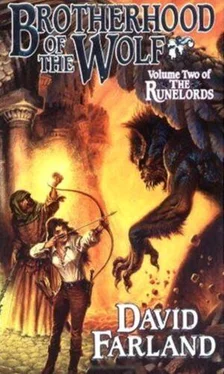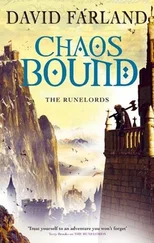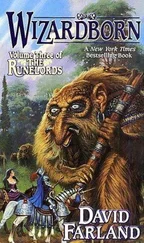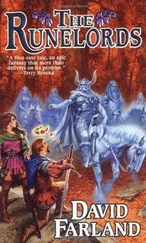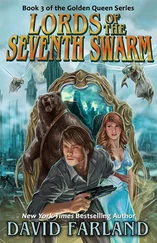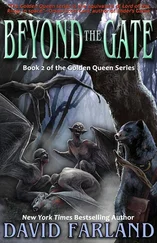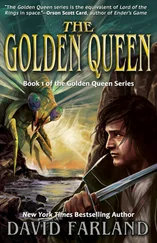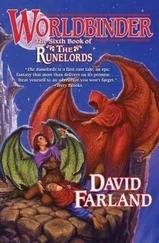David Farland - Brotherhood of the Wolf
Здесь есть возможность читать онлайн «David Farland - Brotherhood of the Wolf» весь текст электронной книги совершенно бесплатно (целиком полную версию без сокращений). В некоторых случаях можно слушать аудио, скачать через торрент в формате fb2 и присутствует краткое содержание. Жанр: Фэнтези, на английском языке. Описание произведения, (предисловие) а так же отзывы посетителей доступны на портале библиотеки ЛибКат.
- Название:Brotherhood of the Wolf
- Автор:
- Жанр:
- Год:неизвестен
- ISBN:нет данных
- Рейтинг книги:4 / 5. Голосов: 1
-
Избранное:Добавить в избранное
- Отзывы:
-
Ваша оценка:
- 80
- 1
- 2
- 3
- 4
- 5
Brotherhood of the Wolf: краткое содержание, описание и аннотация
Предлагаем к чтению аннотацию, описание, краткое содержание или предисловие (зависит от того, что написал сам автор книги «Brotherhood of the Wolf»). Если вы не нашли необходимую информацию о книге — напишите в комментариях, мы постараемся отыскать её.
Brotherhood of the Wolf — читать онлайн бесплатно полную книгу (весь текст) целиком
Ниже представлен текст книги, разбитый по страницам. Система сохранения места последней прочитанной страницы, позволяет с удобством читать онлайн бесплатно книгу «Brotherhood of the Wolf», без необходимости каждый раз заново искать на чём Вы остановились. Поставьте закладку, и сможете в любой момент перейти на страницу, на которой закончили чтение.
Интервал:
Закладка:
They climbed through the oak forest, and Sister Connal watched Myrrima disapprovingly from the corner of her eye. “You’ll have to work on your stance. The problem with being a woman archer is that your breasts get in the way. And you’ve got more than most. You could use a rag, to help tie them down. Better yet, I’ve seen some women just wear a leather vest.”
Myrrima grimaced. She’d always been proud of her breasts, and didn’t fancy the notion of tying them down or covering them in leather.
They reached the top of the knoll and stood a moment. Here, beside the old Durkin Hills Road, the lords had set their camp, and from the top of the knoll, Myrrima could see down over the pavilions to the lands all around the castle.
The fields before Castle Sylvarresta were a sea of canvas and silk. Here by the roadside camped the petty lords, men and women who could claim to be genteel only from a single line or two, people whose fathers or grandfathers had been knighted and thus raised in stature above the common peasants. A high lord would normally be knighted on all four lines, and his ancestors had won the honor generation after generation, confirming his noble blood. But as far as Myrrima was concerned, knighthood was no great honor. Any brute could win it on a good day. Most men among the petty lords had ancestors who were knighted only because their skill with a weapon matched a rude temperament and nasty disposition. For instance, “Sir” Gylmichal in the tent below her was from Myrrima’s home in Bannisferre. The man had been spawned by a foul-mouthed drunkard who somehow discovered that he could find both righteous anger and courage in a mug of whiskey. His father, upon hearing that some bandit had attacked a traveler, would drink himself into a blind rage, usually late after midnight, and then take his hunting dogs and go murder the bandit in his sleep. For that, the peasants would have to bow and scrape the floor with their hats to his descendants for generations to come.
Gylmichal was thus a petty lord, a man with a title but without the breeding or status to rub shoulders with the major lords, whose larger and more ornate pavilions were pitched off to the east side of Castle Sylvarresta.
To the west of the castle, and at its front, peasants had pitched a few shabby tents—or slept with nothing better than the sky as a roof for their heads.
Even farther to the west stood a few bright silk pavilions pitched by the merchants out of Indhopal.
Sister Connal stood atop the knoll for a moment, gazing out over the multitude of tents. “That’s my pavilion,” she said, pointing down to a dirt-stained canvas tent. Whereas the pavilions of Heredon were always pegged at four corners, and numerous poles held up the roof, Connal’s tent was round, with a single pole at its center, in the inelegant style used by the Horselords.
Directly below Myrrima, at the center of the pavilions pitched by the petty lords, was a muddy tournament field, surrounded by posterns with rails atop them, so that spectators could watch the proceedings. Some of the rails were hung with colorful tapestries, to protect the spectators fine clothing from spattering mud. Vendors of pastries and roasted hazelnuts milled through the crowd, calling out their wares.
The sides of the knoll where Erin and Myrrima stood were so steep and filled with brush and rock that no one bothered to stand here to watch the performance below. Still, Myrrima found that it was almost a perfect spot to see over the crowds into the arena, and the sound carried remarkably well. She gazed down over the crowd some eighty feet below, clinging to the rough bark of an oak, and watched the game with Erin Connal and her Days.
Jousting was considered a game for boys in Rofehavan—young men still in training for war. Among Runelords, who were made powerful with endowments of brawn, even a casual blow from a lance could be devastating. So a time came in a warrior’s life when he quit jousting.
In the tournament field, two young men in full armor were mounted on chargers. The boy on the west side of the field looked to be of fairly common stock. He wore tournament armor, which consisted of an extremely heavy helm and a breastplate that was customarily thicker on the right side where a lance was more likely to strike with any degree of force than on the left. It looked to be old armor cobbled together from mismatching outfits borrowed from other knights. His only decorations were a horse’s tail, dyed a vivid purple, stuck into the helm, along with his lady’s favor, a yellow silk scarf, tied to the shaft of his lance. Myrrima’s heart went out to the lad.
The boy on the other side of the field was wealthier. His tournament armor was new, and had obviously been a year in the making. The matching breastplate, helm, pauldrons, and gauntlets were made of burnished silver covered in red enamel, showing an image of three fighting mastiffs. He wore a cape of cloth-of-gold, with bleached peacock feathers in his cap.
The Lord of the Games, Baron Wellensby, sat in a special pavilion off to one side with his three fat daughters and enormous wife. The Baron was ridiculously accoutred in a bright purple houppelande with arms so baggy that children could have hidden in them. Over this he wore a white hat with a wide brim that fell low enough over his face so that he obviously thought no one would notice if he slept through the tournament. His wife, who was no paragon of fashion, wore an emerald-colored cotehardie with gorgeously embroidered floating sleeves. She kept her hands tucked into the slit pockets in front of her, petting a small dog that was peeking out of her pockets just enough to bark when the knights came charging by. During a moment of silence from the crowd, her few shouts of encouragement to the warriors sounded curiously like the dog’s bark.
This was obviously but one pass of many that these boys had taken. Their names had been heralded already, and if they fought for any particular honor, then the terms of the fight had been named and the conditions set.
Now, Baron Wellensby dropped his lance. At this signal, the young men on chargers dropped their own lances into a couched position and shouted, digging their heels into their mounts ribs.
The warhorses responded by shaking their heads and charging forward, their armor clanging, hooves thundering in the mud. The young man who wore the cape of cloth-of-gold had tied dozens of silver bells to the mane and tail of his mount, so that the horse made music as it ran.
Behind the Baron’s pavilion, a gaggle of minstrels sat playing a quick riff on the horns and pipes and drums, providing climactic music for a charge that likely would end with nothing more than a couple of shattered lances. The lances, after all, had been hollowed so that the warriors wouldn’t actually skewer one another, but only knock their opponent from his horse. Upon impact against a warrior, the lances would shatter with a cracking sound that could be heard for miles. The audience was sure to applaud.
Yet Myrrima could not resist the thrill of the battle. Men did get hurt in these affairs. Even a poor blow with a lance could leave a man badly bruised, and a knight who faltered in the way he handled his lance could rip a tendon. A lance could take a man through the visor and thus lodge in his brain, or a fall from a horse could snap a person’s neck.
Mounts sometimes fell in the combat, too, rolling over and crushing their riders. It was a rare festival that didn’t end with at least a couple of deaths, and the spectacle was all the more visceral because the contenders were known to the spectators. One of the knights was bound to be someone that you knew and admired or envied or hated or loved.
The horns pealed and the drums rolled and the chargers raced together with the sound of bells and jangling armor and through it all Myrrima held her breath.
Читать дальшеИнтервал:
Закладка:
Похожие книги на «Brotherhood of the Wolf»
Представляем Вашему вниманию похожие книги на «Brotherhood of the Wolf» списком для выбора. Мы отобрали схожую по названию и смыслу литературу в надежде предоставить читателям больше вариантов отыскать новые, интересные, ещё непрочитанные произведения.
Обсуждение, отзывы о книге «Brotherhood of the Wolf» и просто собственные мнения читателей. Оставьте ваши комментарии, напишите, что Вы думаете о произведении, его смысле или главных героях. Укажите что конкретно понравилось, а что нет, и почему Вы так считаете.
